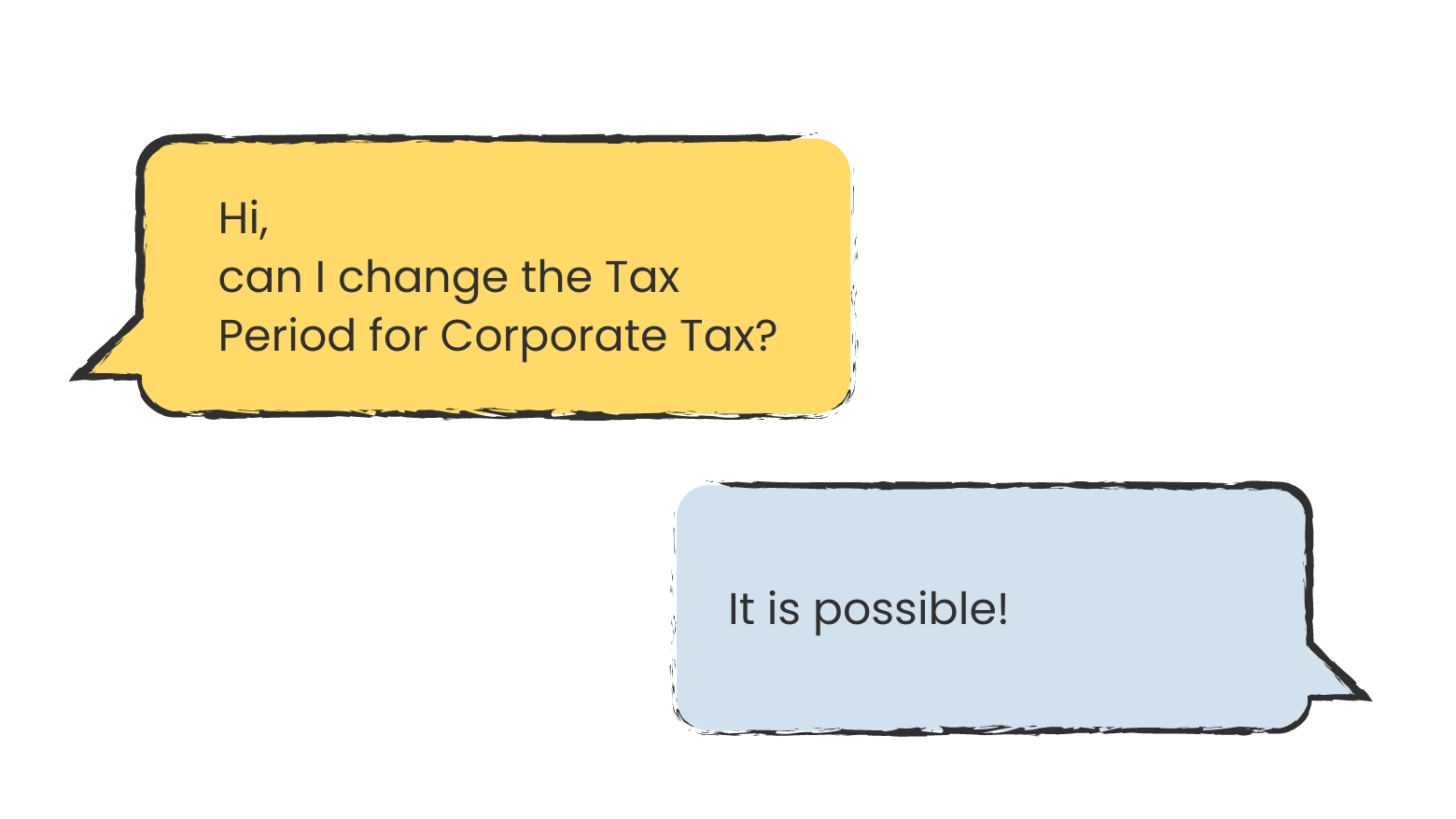- Is it possible to change the Tax period for the UAE CT Law?
- What are the possible reasons for change in the Tax Period of a Taxable Person?
- What are the restrictions under the UAE Corporate Tax regime for change of Tax Period?
- What are the conditions for change in the Tax Period of a Taxable Person?
- The Wrap

Corporate Tax in the UAE: Can You Change Your Tax Period?
Updated on : 28 May 2024
Published : 17 May 2023
KPI

TABLE OF CONTENTS
TABLE OF CONTENTS

Are you looking to align your financial year or the tax period with your overseas parent company or to bring in uniformity with other group companies?
It is possible to change the tax period for UAE Corporate Tax purpose. The change should be for a valid reason, and the approval of directors and shareholders, is required.
In this blog post, we'll discuss the reasons and conditions for changing your tax period in the UAE. Here’s what you need to know:
Is it possible to change the Tax period for the UAE CT Law?
Yes, but for a valid reason. Don't do it only for tax benefits. When the Tax Authority suspects that you're trying to avoid taxes, the General Anti-Abuse Rule (GAAR) kicks in. And you will face consequences for doing so.
So why change it? Let's say you have a group company abroad with a different financial year; aligning yours may make consolidation easier. That is a valid reason. So, make sure you have a good reason before you apply to change your financial year.
What are the possible reasons for change in the Tax Period of a Taxable Person?
- Liquidation
- Aligning the financial year with that of other group companies for the purposes of forming or joining an existing Tax Group
- Aligning the financial year with the domestic or foreign head office, parent or subsidiary, or ultimate parent company. This can help avail benefits from tax relief in the UAE or other jurisdiction
- Commercial, economic, or legal reasons
What are the restrictions under the UAE Corporate Tax regime for change of Tax Period?
To change their financial year or tax period, you should follow the following steps:
- Submit an application to the Federal Tax Authority (FTA). This is in accordance with Article 58 of the Federal Decree Law No. 47 of 2022 on the Taxation of Corporations and Businesses (Corporate Tax).
- Meet all the conditions outlined by the FTA
What are the conditions for change in the Tax Period of a Taxable Person?
The following are the conditions that must be met for changing the tax period. All conditions should be met. Federal Tax Authority (FTA) should be satisfied that the conditions are met and thereafter will confirm the change.
- Tax Return should not be filed for the taxable year for which the change is applied for
- The current tax period should not exceed 18 months, or
- The next tax period should be between 6 and 12 months
- Application should be made in the first half of the original Tax Period
- Shortening of Tax Period is possible only for the next Tax Period. Shortening of Current or Prior Tax Period is not allowed.
The Wrap
This new decision will come into effect on 1 June 2023, and it's essential for businesses to understand how it will impact them. By understanding the conditions and reasons for changing your financial year or Tax Period, you can ensure that your business is compliant with the Corporate Tax regime. And that you're making the best decisions for your company.
LEAVE A REPLY
Related Topics

2 years ago
04 Nov 2022
KPI
UAE Tax Residency Certificate (TRC): What? Why? And how?
UAE Tax Residency Certificate (TRC): What? Why? And how?

2 years ago
22 Mar 2023
KPI
UAE Tax Residency Certificate: Cost and Simplified Guide
Secure your UAE tax residency certificate with our simple step-by-step guide. Get started today and stay compliant!

2 years ago
20 Jun 2022
KPI
UAE Corporate Tax Rates: How to Calculate your tax liability
Calculating your tax liability under the Corporate Tax Law.

2 years ago
21 Jun 2022
KPI
Corporate Tax: Loss carry forward - What, When and How much?
All the answers on Tax loss carry forward under the new Corporate Tax Law.

2 years ago
20 Jun 2022
KPI
Are companies in UAE Free Zones subject to Corporate taxes?
Find out how the UAE CT regime would honour tax incentives for Free Zone Persons.

2 years ago
06 Feb 2022
KPI
New Corporate Tax in UAE: All You Need to Know
The Corporate Tax Law is a Federal Law that will apply to all businesses and commercial activities(legal entities)in the UAE. Find out more.


